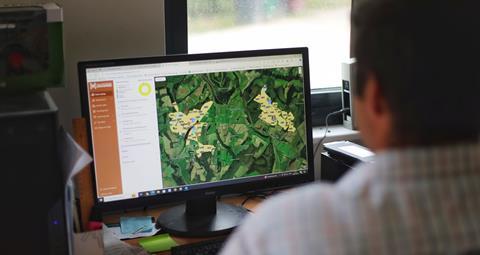The joint initiative involves 685 UK farms that will be supported with funding to transition to more sustainable practices

Soil Association Exchange has teamed up with 12 industry partners to assess nearly 240,000 hectares of UK farmland in a new initiative that aims to improve sustainability.
Involving 685 farms in total across the UK, lead partner and largest financier of UK agriculture, Lloyds Banking Group, has funded over 550 farmers to be involved in the “groundbreaking” environmental baselining study.
The joint initiative looks to detail the most comprehensive farm environmental baseline ever established and will provide a clear roadmap for improving soil health, reducing carbon emissions, and supporting biodiversity.
Range of businesses
With a working name of ‘Exchange Market’, the pilot will draw funding from a range of supply chain businesses, making payments to farmers over sustained periods to support them in transitioning to more sustainable practices.
According to the Soil Association, environmental outcomes will be monitored and verified using the Soil Association Exchange platform, allowing those supply chain partners to evidence impact and progress towards Scope 3 reductions.
To further address the challenges identified, a new cross-supply chain model is being piloted to reward farmers for sustainable practices.
The scheme forms part of the 10-year partnership between Soil Association Exchange and Lloyds Banking Group.
CEO of Soil Association Exchange, Joseph Gridley, said: “Our goal is to empower farmers with the tools they need to make positive changes for their businesses, their communities, and the environment while still producing high-quality, nutritious food.
“From our research and the quantity and breadth of farms audited in the study, the need to adopt environmental measurement at scale is clear. Baselining UK farms with a common methodology provides a route forward and addresses the real risk of inaction and scepticism in collating data.
“Our approach also offers farmers confidence to make informed decisions; balancing environmental sustainability with profitability, ensuring farmers have the tools and guidance they need to access the funding needed to support their transition.”



